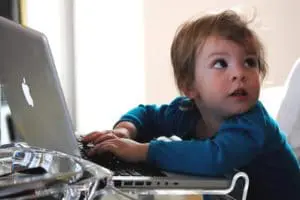 Even the least savvy of blog owners know that a link from another website to their own will drive some referral traffic, and that one well-placed link can be the difference between having one visitor and one thousand visitors. Yet too few know about the other benefits that inbound links can bring: namely how much cultivated links affect your search rankings. If you want to get as many visitors as possible to your website, you need to work on the two main ways of finding a website: referral and search. Links are key to both, but how do you create them, and in the right way? If you are completely clueless as to what link building means, here is a ‘Link building for dummies’ introductory guide to highlight some of the best practices in link building, and how to avoid falling foul of obvious traps.
Even the least savvy of blog owners know that a link from another website to their own will drive some referral traffic, and that one well-placed link can be the difference between having one visitor and one thousand visitors. Yet too few know about the other benefits that inbound links can bring: namely how much cultivated links affect your search rankings. If you want to get as many visitors as possible to your website, you need to work on the two main ways of finding a website: referral and search. Links are key to both, but how do you create them, and in the right way? If you are completely clueless as to what link building means, here is a ‘Link building for dummies’ introductory guide to highlight some of the best practices in link building, and how to avoid falling foul of obvious traps.
Learn What Links Do
When Google is trying to decide which websites should turn up on the first page when you type in a search query, one of the main metrics it uses is to gauge how many links a website has pointed at it. Every time a website links to another website, Google interprets this link as a vote or endorsement for the quality of that website. The better the website, the better the endorsement. For example, getting the BBC to link to your website will make you seem much more awesome in Google’s eyes than getting a link from iamthecoolestwebsiteever.com. Authority websites (especially those like .gov and .edu websites) are great for giving you a search bump.
‘No Follow’ versus ‘Do Follow’
Not all links pass on this endorsement to Google (which SEO experts sometimes call ‘link juice’). Once the SEO community realized the value of links in the early 2000s, dishonest SEO practitioners simply spammed the internet with hundreds upon thousands of links pointing to their websites. Comments on blog posts, in particular, were stuffed with links as unsavory characters effectively tried to steal link juice from unsuspecting websites and blog owners. Google put a stop to this with introducing the ‘no follow’ tag. With this tag, website owners can tell Google that they do not want Google to follow the link and therefore the link does not pass on any ‘link juice’.
When should you use ‘no follow’ on your own website? The main use is in the comments section, to stop people commenting on your blog to try to gain some link juice (although most CMS’s like WordPress do this for you automatically). The second use is that Google mandates that any paid advertisements should be ‘no followed’ so as to stop people buying link juice. Google’s ability to detect the difference, however, is very flawed, so many simply ignore this rule (to their later unhappiness).
Newbies love placing a link on words like ‘visit my site’ or ‘read more’, but such practice makes SEO experts (or just anybody who knows anything about link building) want to crack their head against a wall. Anchors should describe the link placed over it, and should, therefore, be a keyword relevant to yourself or a brand name. For example, if I read an interest article about link juice, I want to link to it by placing the link over the word link juice (as I just did). It’s that simple.
When it comes to applying that advice to your link building campaign, you should try to ensure that links back to your website contain keywords relevant to yourself. If you want to advertise that you are an inbound marketing company, then make sure you link contains those exact words. By focusing in on a keyword(s), you can start to get yourself in the topic ranks for said keyword(s).
Getting Your Links Around
The best way to get your links in the blogosphere is to offer to write guest posts on other blogs. That way you can share you unique outlook and content with the world and offer something to the blog owner in exchange for the link. If you manage to write guests posts for the bigger blogs in your blog neighborhood, you will probably get a big chunk of referral traffic too.
Big blog owners have offers to guest posts flying at them all the time, so building relationships is key. Being genuine and offering top-notch quality guest posts is the best way to get yourself ahead—display your worth and it will come back to you tenfold.
Don’t forget about internal linking too
Internal linking does not gain you nearly the amount of juice as external linking, but it is good practice to ensure that your website is well mapped out and that your internal linking system is solid. Making sure that all your pages link back to one another and that there are no ‘dead ends’ is important not just for search but also for just making your website user-friendly. So read up on internal linking and make sure you are doing it right.
Ashley Williamson is a freelance writer and an occasional guest blogger interested in business, marketing and SEO related topics. When she is not working she likes to travel and read as much as she can. If you have any question feel free to leave a comment.




